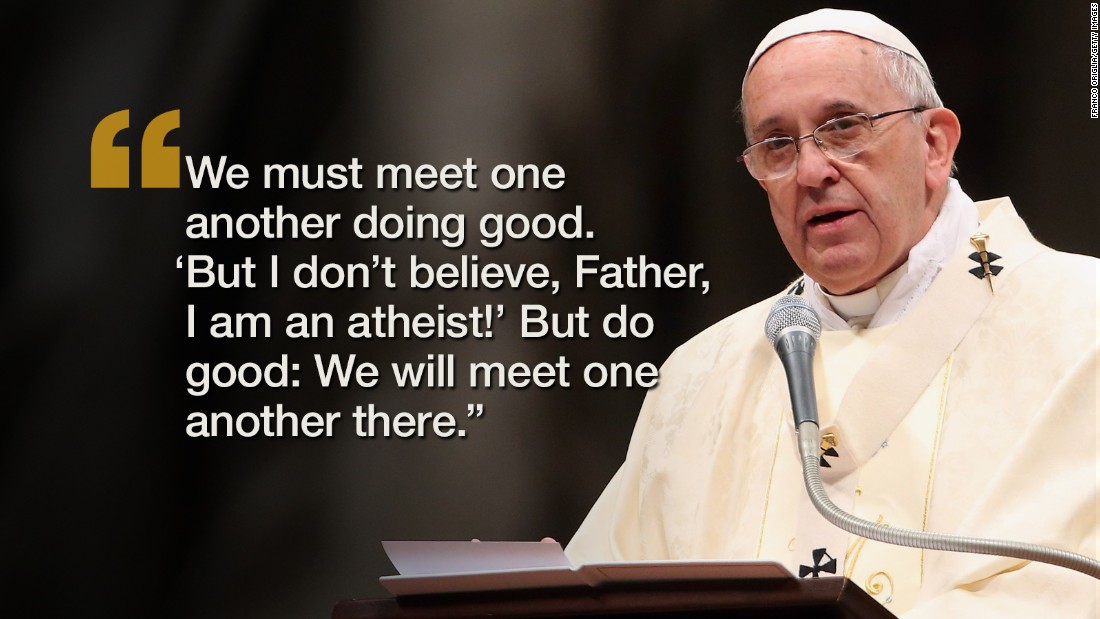Hilary White
You’ve heard of WikiHow? Well, here’s RemnantHow!
We’ve all heard the hype:
“New Movements as Agent of the New Evangelisation!”
St. John Paul II, Message to participants in the 1st World Congress of Ecclesial Movements and New Communities (1998):
“Ecclesial movements…represent one of the most significant fruits of that springtime in the Church which was foretold by the Second Vatican Council … Their presence is encouraging because it shows that this springtime is advancing and revealing the freshness of the Christian experience based on personal encounter with Christ.”
The Pontifical Council for the Laity:
“Unfortunately, movements and new communities are still a resource not fully valued in the Church, a gift from the Holy Spirit and a treasure of graces still hidden to the eyes of many bishops, probably afraid of the novelty they might bring to the life of their dioceses and parishes.
“A real ‘pastoral conversion’ is demanded on the part of bishops and priests, called to recognize that movements are, first of all, a precious gift rather than a problem.”
The so-called “New Movements” or “Lay Movements” or “New Ecclesial Movements” have been a feature of Catholic life since the total collapse of normal Catholic life for the laity became the abiding reality for the Church. The largest and most influential of them are consulted by world leaders and enjoy the approbation of the whole world, having seats at the UN and European Union and feature regularly at international events of the global elites.
And BOY-HOWDY are they popular!
The Vatican’s website lists no fewer than 122 officially recognised “International Associations of the Faithful” as they are called in canon law, many of them founded by ordinary laymen just like you!
You might be asking yourself right now, “How can I get in on this racket?”
We’re here to help. Just follow these simple steps:
1) Be a sociopath.
While this isn’t completely necessary, it sure seems to help.
Carefully create a persona of warm and benevolent wise superiority – that it would be mad and evil to disobey. Imply – but never specify – that you know things other people don’t know and that the Church has never known before in all the centuries of saints and mystics and if they hang on your every word long enough they will be initiated into the Cult of You and come to know things and be mysterious and wise too, like Gandalf.
Make sure you publicly declare that you “have faults too, just like everyone else.” Never be specific or, if asked directly, list faults that are the exact opposite of your real faults. (Make sure you write these down for later reference in case anyone asks again.)
Practice a “warm, mysterious and wise” smile in the mirror until you can do it on command.

2) Choose a simple catch-phrase or word upon which to found your movement.
Make sure it’s something easy to remember but difficult to define. It must be a concept that everyone can get behind without requiring specifics, like “unity,” or “mercy”. The key here is to have something absolutely impossible to refute without coming across as a complete jerk.
The test for the usefulness of your catchphrase will be, “What’s wrong with you? Don’t you like [X]?” Be ready at the drop of a hat to go on the offensive when challenged. Claim that anyone asking for clear definitions are “rigid” and “retrograde” and “against [X]” and trying to force the Church to adhere to “outdated norms” and “ways of living the Gospel.”
Imply they are anti-Semitic.
3) Pick 2-5 Scriptural passages that “speak” to you personally. Claim to reinterpret them “for today’s needs” or for the “needs of today’s Church.”
Create a brief narrative that links your catchphrase to these passages. Make sure this narrative can be given easily – as in a pamphlet or website – in a bullet-point list. Stick to these like glue. Repeat them in every interview, article, book, speech and talk.
Starting with your bullet-point list and your catchphrase, pad the rest of your material – your “commentaries” on Scripture, public letters, interviews, talks, lectures and books – with vaguely Catholic-sounding nonsense.
(NB: with today’s technology it shouldn’t be difficult to get one of your more tech-savvy young followers to create a helpful algorithm to allow you to mix and match.)
Never forget, your target audience isn’t people with real degrees in Catholic theology. If you are attacked or challenged in any way by these, claim that your knowledge comes from “Above”. Exhort your followers to abandon “mere” book learning and to adopt a “deep, holistic interior knowledge of the Gospel.”
Claim that everything you say is “Thomistic.”

4) Say incomprehensible, nonsensical and/or logically contradictory things as your personal “aphorisms” or “maxims” which followers are obliged to learn.
Make sure these are literally impossible to fulfill, or contradict the essential purposes of Christianity, or the actual plain meaning of Scripture or common sense.
Alternately, make them so blindingly self-evident and simplistic that your followers will assume there must be some “hidden deeper meaning” that has to be acquired through greater “growth in the Movement.” Or have them be mostly empty of any meaning at all, and so interpretable in any way.
Examples:
“Lose everything, even the attachment to holiness, so that you aim only at one thing: to love.”
“Let us allow God to act. Let us not block His omnipotence with the narrowness of our views.”
“Let’s rewrite the Gospel with our lives.”
5) Attack the old ideas of Catholic authority (ie: priests and especially “tradition”).
Say that “people of today” have matured in their understanding (“Everyone’s literate now.”) and that “new ways of understanding” and living the Gospel are needed “for our times”.
Make sure to say that things in the world are generally moving along in your intended direction, but that more “work” is needed to help people “overcome intransigent attachments to past models” based on “fear”.
Something like this:
Some symptoms of this breath of the Spirit are certainly present today in Europe. To find them, to support and develop them, it is necessary at times to put aside atrophied schemes to go where life begins, where we see fruits of life produced ‘according to the Spirit.’”
The key is to imply that modern people have spiritual needs and concerns that no one in the past has ever had before, but at the same time that “hierarchical structures” are no longer needed (except yours). This will be because the modern world is so different from the old world and people are therefore also different and, crucially, that only your Movement has the key to knowing how.
This leaves a door open for you to say whatever you like and be completely at variance with every interpretation of Scripture the Church has ever had before, because that was all in the Before Time.
Of course all that was right for Catholics in those times. But we have to move forward, and offer the People of God a way of living authentically in the here and now… ”
Quote the recent popes frequently.

6) Say that this “new way of living the Gospel” is in fact a return to the practices of the Early Church.
Never acknowledge or show the slightest sign of awareness that this is a contradiction to everything else you’ve said, or that “contradictions” are even a thing.
Whatever odd practices you dream up for your followers to do, teach them all to repeat that the Movement is “just the normal practice of Catholicism.”
7) Do your research.
Find out what a great proportion of your potential followers want in life and are afraid they won’t get from the usual ecclesiastical channels. Have the parishes given up normal, weekly parish devotions, with Father and Sister Mary Pantsuit spending all their energy going to “pastoral leadership workshops” and conferences? Create paraliturgies that can replace these normal Catholic devotions.
Use the old liturgical books to mine for general parameters of what liturgy looks like. Make sure they include simple, repetitive and Catholic-sounding Latin phrases like, “Jubilate Deo omnes gentes,” that can be incorporated into your bullet-point lists of meaningful interpretations (as above.) Make sure the tunes are simple and catchy and can be quickly memorised like a mantra. Hire an expert in Gregorian Chant to give the whole business just enough air of authenticity.
Produce a pamphlet with each of these paraliturgical functions that explains – with a bullet point list – how they relate to your catchphrase.
Use a lot of incense.

8) Claim that you have had a special revelation from God.
Be careful with this. While it is an absolute necessity, this step has to be handled delicately, particularly with regard to timing.
The following method is well-tested by many Movement founders:
- Within the first couple of years, but no earlier than 6 months in, start getting up before dawn and slipping out of the house to go to the chapel/church for morning Mass well ahead of everyone else.
- When they come in, make sure you have a very slightly surprised and joyful – but not manic – expression of beatific happiness. (Practice this in the mirror.)
- Say nothing to anyone after the Mass, but allow the usual chit-chat to go on around you as if you are oblivious and listening to an inner voice.
- Allow your followers to start wondering if “something happened.” Don’t answer, but only smile self-deprecatingly if asked.
- Reveal your moment of ecstasy to each follower, one at a time, in a confidential tone.
- Tell them not to tell anyone else.
Having done the ground work of implying that old Catholic interpretations are no use to “people of today,” your reputation for personal revelations from God or the Blessed Virgin will be easier to believe. Once it is established among your inner circle, it can be allowed to spread abroad.
NB: Never come out and say that you are personally privy to a heretofore undisclosed-by-the-Holy-Ghost, at-long-last-revealed true and authentic meaning of these passages. Let your followers say it.
Practice acting surprised and embarrassed in the mirror.
9) Reveal this meaning only to your closest associates.
But strongly hint to followers that you know something – lots more things – they don’t know, but really need to know and if they stick with you long enough they’ll be like Gandalf too.
Release each new revelation in a drip-feed fashion as the follower “grows in the Movement.”
It’s quite safe to make it something obvious; the more obvious the better, since it will help convince the subject that he is indeed “growing spiritually” and will soon be having his own little private revelations.
10) Create a hierarchy.
Very simply, allow your inner circle to take over various tasks and governance of the lower levels on the grounds that they have “grown spiritually” and are now more wise and mysterious and like Gandalf than the next circle out. Create a graduated stair of classifications that a follower can gain as he becomes more wise and mysterious and Gandalfian.
A useful tool for this is the creation of “courses” or “workshops” to be held at annual mass gatherings followers are obliged to attend.
Make sure each of these levels comes with certain privileges.

11) “Love bomb” priests and bishops, by inviting them into your inner circle.
Especially invite them to speak at your events. (Make sure their accommodation at these events is nicer than that of your inner circle, and invite them to have “private” dinners with you. During these dinners you can imply that the bishop will experience a genuine “pastoral conversion” by attending more of these events.)
Getting ecclesiastical approbation and protection will be crucial. Your air of wise and mysterious Gandalf-like superiority, carefully bolstered by the deference of your inner circle, will allow you the leeway to be ostentatiously deferential to your potential ecclesial patrons. Remember that a bishop was never born who didn’t like to be deferred-to.
Teach your followers to remind the bishop that he is being deferred to by a person (you) who is the subject of a massive cult of adulation but who at the same time is publicly deferring to him because he’s a bishop. The subject of the cult of adulation (you) has “great respect” for the Church.
Given them nice presents.
Here’s a handy list of descriptions you can use to explain the divinely inspired meaning and purpose of your Movement.
“We emphasise sanctification of ordinary daily life, in keeping with the exhortation of the Second Vatican Council that all must strive for holiness in every state of life.”
“We take the Catholic concept of the ‘priesthood of the people’ and live it in our daily lives according to our state in life.”
“We live the Gospel according to the promptings of the Spirit in regular parish life.”
“We bear witness to the loving and liberating presence of God, particularly in the service of the young and the poor.
“We take careful account of different family, social and cultural situations in which contemporary men and women live…”
“We combine the truths of the faith with the needs of the times, and for a new type of education for the young people entrusted to his care, springing from the intimate depths of man, making people free and capable of making responsible choices.”
Some handy gobbeldygook:
“The missionary zeal of the new realities, indeed, does not surge from emotional and superficial enthusiasm, but springs from intense experiences.”
“an extraordinary missionary thrust characterized by courage, joy of announcing Christ and an amazing creativity.”
“…it is enveloped the most profound secret of the fecundity of the evangelizing thrust not only of the ecclesial movements, rather of the Church of all times.”
“This witness gives rise to the desire to be involved in the great parable of communion that is the Church.”
“God is opening before the Church the horizons of a humanity more fully prepared for the sowing of the Gospel.”
Learn the following expressions. Mix and match and use them regularly. After a while, they will become second nature.
(NB: Make sure you never offer clear definitions.)
“gifts of the Spirit”
“way forward in our challenging times”
“carry out an effective work of evangelization.”
“effusion of the Spirit”
“the first breath of authentic evangelization”
“the freshness of the Christian experience based on personal encounter with Christ.”
“spiritually centred on Mary and on the Founder
And that’s about it. Just keep applying the steps and get ready to welcome your thousands or even millions of followers and accept your international awards for “progress in religion,” meetings with popes, NGO status at the UN and a host of other perqs.
Iceland is aborting Downs babies into extiction while the Vatican helps the country mourn the loss... of a glacier.
A monument to future generations, a bronze plaque, that apologises to our descendents for our stupidity, really doesn’t sound like that bad an idea, right?
I mean… assuming there are any descendents…
I mean, the whole Demographic Winter issue is getting to be a pretty big concern, right?
 Cardinal Bagnasco, head of Italian Bishop's Cconference, speaks to Pope Francis
Cardinal Bagnasco, head of Italian Bishop's Cconference, speaks to Pope Francis
The dust is well-settled on June’s “Gay Pride” festivities held up and down the Italian peninsula. The pamphlets and confetti, condom packets and night club brochures have been swept up and the rainbow and hammer-and-sickle flags mostly put away, so we can take a look around at the general lie of the land, see which bishops said what about it in the end.
When I took photos of the Rome Pride demonstration in 2009, no one had ever even heard of anyone suggesting any response against it from the Church, either episcopal or lay. But last month a few tiny little events, barely grudgingly endorsed by a few bishops – and banned by others – went forward.

Traditionalists talk a lot about finding ways to return the Church – and consequently the world – to the state of Christendom in the Age of Faith. We all have dreams of recreating the glories and certainties of medieval Christendom, and some monastics – Norcia, Le Barroux, Clear Creek, the Benedictines of Mary, the Carmelite monks of Cody, Wyoming - are even going so far as to bring these dreams to reality in stone and mortar. But much as we all love pointed arches and Gregorian Chant, is it possible that these dreams are leaving out a big piece of the puzzle? At least, in terms of rebuilding larger Catholic civilisation, are we perhaps forgetting that the fruits of Christian culture presuppose a social, political and cultural context that made such physical manifestations possible?
(Photos taken by Hilary White at the Roma Pride demonstration in 2009)
“Just go to a better Mass…”
I suppose most of the Remnant’s audience will not be under any illusions about the health of the Church in “traditionally Catholic” Italy. But I wonder if people know in detail how bad it really is. I’ve observed that among North Americans, and lately even Brits, there is a kind of consumer mentality growing, even in the Traddie world. If you don’t like the silly guitars and bongos of your local Novus Ordo, just go to the local Traditional Mass, or at least “choose a parish” that does the NO “more reverently.”
In a recent exchange on Twitter, in response to a post I made rather unmanfully complaining about the poor quality of our local village Novus Ordo Mass, a woman said, essentially, “Why don’t you just go to the local TLM?” I’m pleased to say that I successfully refrained from responding, “Sure, I’ll just have a little cake instead of bread…”

Umbria, not Montecasino; the true cradle of Western Monasticism
In tourist brochures, Umbria is called the “green heart” of Italy - the only region[1] without a coast, and the exact geographic centre of the country. Though the most tourists usually hear about Umbria is about St. Francis, his was in fact a late revival; the roots of Catholic mystical spirituality go much deeper into Umbrian history.
Europe waking up; Socialists and ‘68ers[1] losing their grip
Very much like the “conservative” Catholics getting unpleasantly shocked out of their 50 years of enchanted Novusordoist sleep by the incredible spectacle of this pope, throughout the secular world people of Europe are also waking up. “There’s a proper reawakening across Europe going on,” a young Dutch politician said after late March elections swept much of the old leftist guard out of his country’s Parliament.
36 year-old Thierry Baudet was especially jubilant at the thought of the anguish of the Eurocrats in Brussels over the political sea change in the Netherlands and across Europe.
In every area of life in which we're doing insanely stupid and self-destructive things, it seems that the main cause of our increased stupidity has been the sudden introduction in the last century and a half of technologies that are intended to make things "easier". Mechanisation and the introduction of artificial fertilisers was supposed to make farming easier. And for a while it did. We solved the food problem, at least mostly, and for a certain value of "solved".
Now if we have a famine it mostly happens in places where the natural, social and political structures supporting agriculture are more fragile (Africa) and where political upheavals, that ancient cause of famine, have made transport of food in difficult times - eg: prolonged drought - impossible. In other words, a place like Ethiopia already has enough climate, soil and water issues for farmers to deal with; add a civil war and unscrupulous political criminals, gangs of thugs kidnapping children to be soldiers, and you've overwhelmed the system, given it more to deal with than it can handle, and it collapses. The huge movements of Ethiopians into refugee camps for famine relief that we all remember from the mid-80s turned out not to be so much a problem of not enough food, but the disruption of agriculture and transport systems by warlords – who, by the way, stole much of what was sent by us western do-gooders.
But that damn law of unintended consequences...

We're starting to see some insidious and accelerating problems with the way we do our mass, mechanised food production, and depletion of soil fertility is probably the biggest. The move to more Bigness in every area of human endeavour, the Gigantification of life - globalisation this, mass production that, mechanisation the other thing - has created a whole set of problems that no one seems to have any bright ideas to solve. And they're going to get worse the more we re-engineer our society to fit the needs of the machines.
Noteworthy: after things settled down after the "fall" of the Roman Empire, there were few serious or prolonged famines in European history (though we went through a bad patch in the 12th century it seems) before the advent of complex (and hugely expensive) steam or gasoline-powered farm machinery and artificial fertilisers/pest/herbicides. The famines we did have were mostly due to the same things that cause famines today: extreme weather events we have no control over – strings of very dry winters or a few years of late frosts or too-cold or too-dry growing seasons – combined with the disruption of agriculture and transport by wars. (William the Conquerer created an artificial famine to drive the Danes out of the north of England by burning farms.) It was never lack of knowledge of the land or how to grow food. Medieval peasants, far from being ignorant muck-rakers, knew what they were about. Their descendants in Italy - the contadini - still know that stuff.

But it seems that since the advent of mechanised farming (mass-production of food on the huge scale you see in North America) we've straight-up forgotten the small intimate details of how to do anything. All that about soil management and all the little things that made medieval agriculture work is all gone. Who needs to think about replenishing natural soil nutrients or maintaining the substructure if you've got machines and bags of fertiliser, amirite?
And that doesn't even get into the problems we've created in the loss of diversity in food plant varieties. One of the first things you notice when you come to Italy is that they eat here a much wider range of fruit and vegetables than you'd ever find in an Anglo supermarket in the US, Canada or Britain. It's normal for Italians to grow their own salads, and they all know there are a dozen different kinds of lettuce and salad-things. How many North American shoppers know that there are hundreds of different kinds of brassicas? We eat broccoli and cauliflower - and only one type of each, and, perhaps more importantly, have no idea that there are other things.
When you come to Italy you have to learn what are (and how to cook, and whether you like) bietole, cime di rapa, cicoria, Romanesco broccoli or cavolfiori rosso, (it's cauliflower, but it's purple!). The dozen-odd different kinds of leafy veg the Italians eat all narrow down, in Angloland, to... spinach. And the same kind of spinach for everyone from coast to coast. Funny isn’t it, that the Gigantification of production has resulted in the ensmallifying of everything produced.
The Gigantification of life, the doing of everything on a massive and unimaginably distant scale, is all said to be in aid of "saving us labour." But what have we saved all this labour for? So we can live in suburbs and drive cars to go work at a desk doing something that has nothing whatever to do with our own life. So we can forget how do to anything ourselves? It may have saved us all labour but it has also left us with nothing Real to do. What are we saving our labour for? What do most of us do with the time we don't spend weeding a kitchen garden or making beer or milking cows? Have we separated ourselves from the sources of our life only so we can spend more time watching TV? Scrolling Facebook? Arguing for hours over nothing on Twitter? Are we holier? More learned? More enlightened? Do we write poetry and play music? Do we even know any poetry?

It certainly does mean that you don't have to make your own socks or grow anything yourself, or really do much of anything. But why is this a good thing? Everything is now done for you on this titanic scale and at unimaginable distances from your house or flat. But the result is that now, not only does no one know how to knit a sock or grow a cabbage, we don't know even how to darn a sock or cook a cabbage.
And of course, though we may not have noticed, the whole thing takes all decisions about the details of our day to day life out of our hands. We can't decide today to have bietole and cavolo nero for dinner because someone else, someone we will never meet, has decided for us that these things will never be grown on the Monsanto-Giganto-farm, or ever appear in our shops.
No one complains that there are so few different kinds of things to eat because no one remembers a time when there was anything in the shops but one kind of broccoli and one kind of cauliflower. How many different varieties of apple can you name in fifteen seconds? Did you know that there used to be hundreds of different kinds of apples? And that everyone used to know them? One of the things that has come from Gigantification has been a mass-forgetting, the memory-holing of life, the diminution and impoverishment of a great richness and variety in life and experience that has all been mechanised and mass-produced away. So we can commute to work.
The Gigantification of production, of everything we need or use in life, has made us careless, forgetful, lazy and bored - stupid, in other words - because it's easier. We bought into it all because it's easier to buy a pair of socks made in China than to knit by the fireside. We only eat the one kind of broccoli that MassoGigantoFarmCorp allows us to buy because we have forgotten that food isn't some magical thing provided by far-away, unseen, unknowable powers. Food doesn't come from Monsanto or the government. It comes out of the ground if you plant a seed.
It just seems that every time we change things from doing things at the micro level - that is, the local, and manageable by ordinary people with regular means - to the macro level - things on such a huge scale they can be done only by governments or huge corporations with enormous national-scale resources - we render ourselves functionally helpless and dependent on systems we have no control over. And we create terrible, growing problems that we can't solve, except by doing more of the huge-scale things that caused the problems in the first place.
All this stuff about natural preservation and use of soil was known to farmers of the Middle Ages and before, and has since largely been forgotten. It's a funny thing that in so many important ways we've become much, much stupider since the "Enlightenment." It's part of the function of the Enstupidment that we don't know how much we've forgotten. We've forgotten that we ever knew it.
I recently asked someone what "distributism" really means. In brief, I think it mostly means this:
It means the re-ensmallification of life. The rejection of Gigantification. It's knitting a sock, or even darning a sock. It's growing a cabbage and cooking and eating it. Or at least knowing how.

This year the director of the Lord of the Rings films, Peter Jackson, offered the world a unique look into recent history. Produced to coincide with the 100th anniversary of the cessation of hostilities in World War I, Jackson created the extraordinary documentary, “They Shall Not Grow Old.” The film features archival footage of soldiers of the Great War, painstakingly remastered using computer technology to show us a glimpse of the war as these young men would have seen it.
The film slows down, cleans up and then convincingly colourises the original footage to show us the kind of young men – many of them only boys – we can easily imagine knowing ourselves. It takes the war out of the realm of remote and quaint lost era of the past, the world of the silent film and comic antics of Charlie Chaplain, to an immediate and humanised reality.
Abusus non tollit usum.
When prelates talk about “the universal call to holiness” it is difficult to stop oneself scoffing. When we hear the Kasperian/Bergoglian phrase “process of discernment,” for instance, in reference to the programme to mandate the systematic desecration of the Most Holy Sacrament of the Altar, we experience a reflexive reaction of revulsion. And we might have a problem there. With all the deliberate, calculated distortion coming out of the Church in our times, perhaps the greatest danger is not that we will listen to them and be taken in by their blatant nonsense, but that we will end up rejecting the truths they are twisting and distorting.





